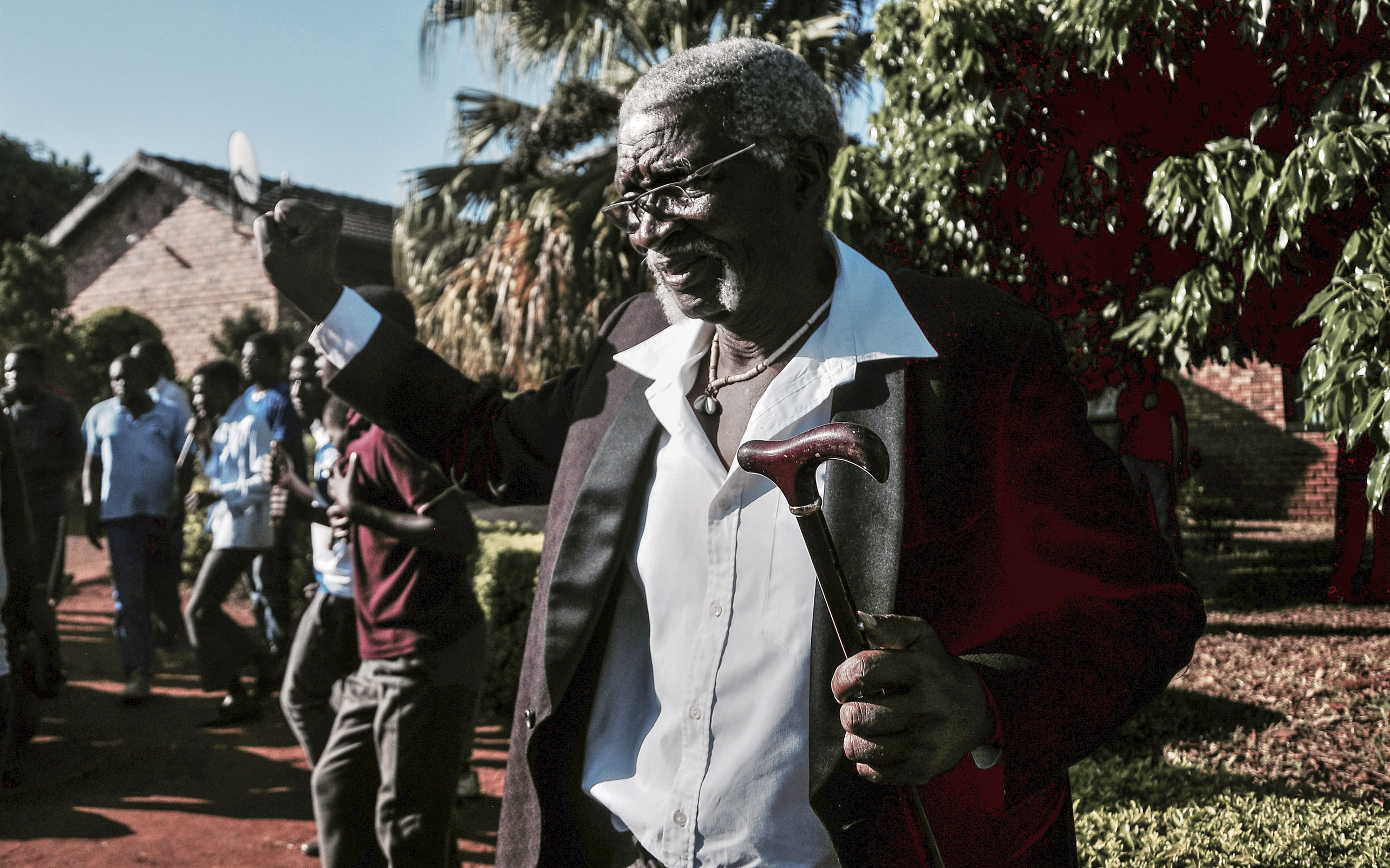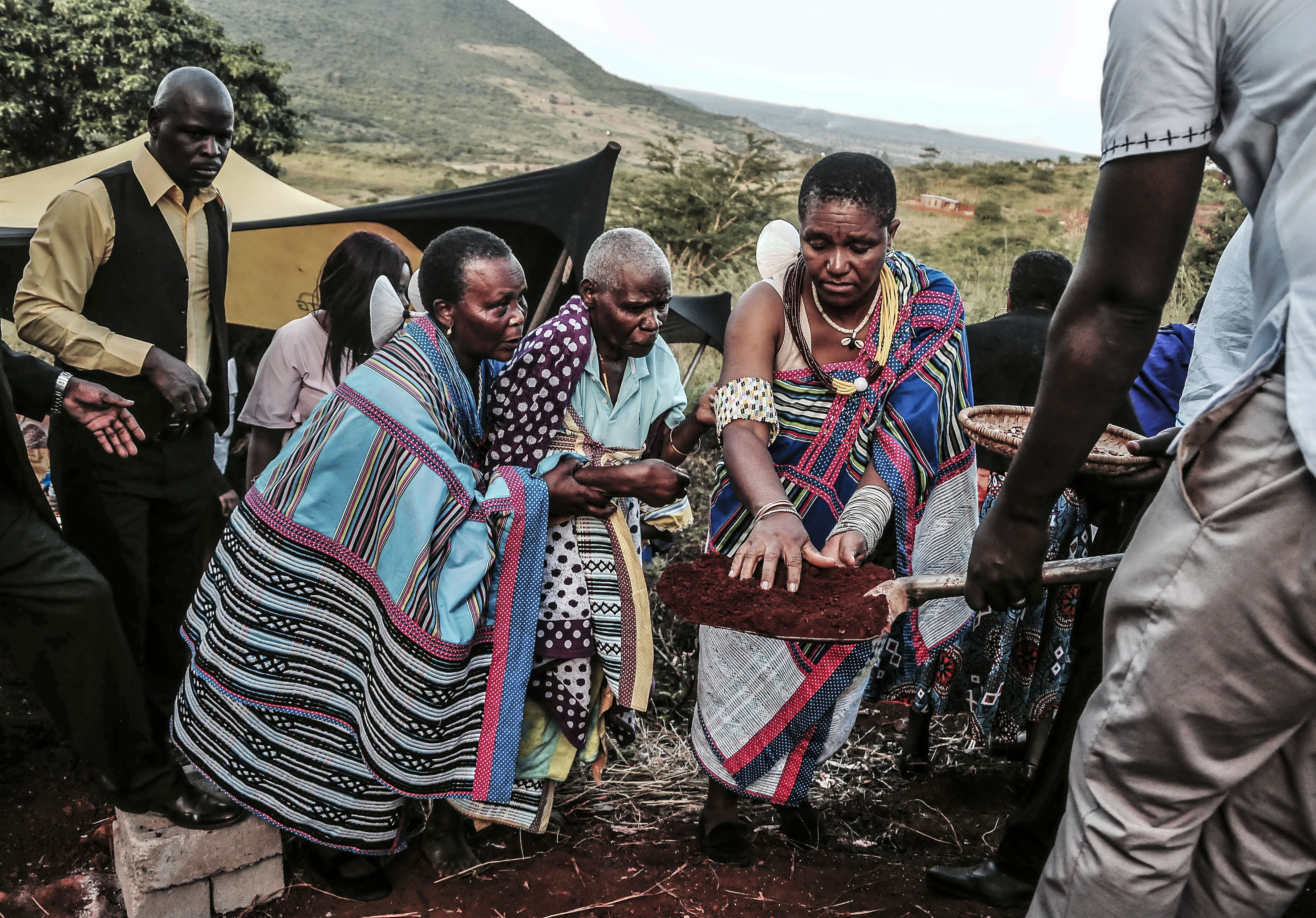In her battle for the throne, Masindi Clementine Mphephu has asked the court to declare that no person associated with corruption may become king or queen of the VhaVenda. File photo by Lucas Ledwaba/ Mukurukuru Media
Sometime last year, Vho-Luvhengo Ndou Dima from Thohoyandou told her family that it was going to be the last year she would be with them. At the age of 116, she felt the time had come for her “to go visit”.
The supercentenarian was in relatively good health for her advanced age and her memory was still amazingly sharp, but it was inevitable that the matriarch would depart the land of the living.
After all, she was one of the oldest people on Earth. Last month the Guinness World Records confirmed Japanese citizen Kane Tanaka as the oldest living person, at just a few months older than Vho-Luvhengo.
Mashudu Dima says his mother was born in the late 1800s, long before her official birth date of July 19 1903. The official date was arrived at after a lengthy interrogation of her family history.

The late vho-Luvhengo Ndou Dima’s son, Mashudu Dima is on a crusade to preserve the Venda way of life, including teaching people about traditional ways of burying the dead. (Lucas Ledwaba/ Mukurukuru Media)
On March 28, surrounded by family, Vho-Luvhengo took her final breath at her home in Block C in Thohoyandou. She had finally gone to visit.
“We don’t believe that a person dies,” explains Dima. “Only the skin and the bones die. But the spirit does not die, it visits.”
Dima is a Venda healer, cultural activist and historian. With his wife, Mphatheleni Makaulule, an indigenous knowledge systems scholar, they founded the organisation Dzomo la Mupo — meaning “mouthpiece of nature”. It advocates for the preservation of sacred sites and forests and the preservation of the indigenous spiritual and cultural ways of VhaVenda. “Mupo” can be superficially translated as nature, but its meaning is much deeper, referring to everything not made by man — sunlight, moonlight, rivers, waterfalls, fauna, flora and the air that we breathe.
“When the body dies, then the spirit moves on to visit elsewhere [in the mupo]. That is why we don’t say we are going to throw a person away. We say we are going to bulunga [preserve] them,” says Dima.
Throughout her life, Vho-Luvhengo, like many from her generation, kept to the values of her tradition, avoiding Western influences and Christianity as much as possible.

Sacred: Vho-Luvhengo Ndou Dima was given a traditional Venda funeral in Thohoyandou in Limpopo. (Lucas Ledwaba/ Mukurukuru Media)
For her funeral in Tshakhuma, the Venda matriarch’s tiny frame was draped in her ṅwenda, a brightly coloured garment bearing intricate square designs. Makaulule explains that when an elder passes on they are sent off in their ṅwenda.
The ṅwenda is more than just a garment. To the living it is a source of pride and identity, a sign of one’s standing in society and to the departed, an everlasting reminder and connection to the world they have left behind.
“The patterns and the colours [of the ṅwenda] resemble the colours of nature: soil, sky, water. It resembles the colour of mupo,” says Makaulule, who is a master’s candidate at the University of Venda.
Whereas in black communities Christian practices have come to dominate how families conduct funerals, Dima endeavoured to send Vho-Luvhengo off in the manner she would have preferred — the traditional way. As a princess, the daughter of a vhamusanda (chief), she deserved to be sent away in the ways of her people, he says.
“When we grew up there was no Bible [in our family]. We followed rituals. We conducted rituals.”
Long before the advent of mortuaries, says Dima, when a person went to visit, their body would be smeared with ash to ward off flies and to slow down decomposition.
Because the person’s spirit was in transition between the living and the spiritual world, the elders would gather to phasa.
This is a sacred ritual in which the family, led by elders, gather at a shrine, usually a tree or plant in the homestead, to announce to those in the spiritual world the passing of the person and to plead for their safe passage into the ancestral world.
The funeral ceremony would then take place that very evening, after a series of rituals, including brewing beer and sacrificing a cow. The cowhide would be wrapped around the body for preservation.
But as more people moved from their homes to live in far-away cities to work, it became increasingly difficult to stick to some of the rituals. With families scattered, it took longer to organise and prepare for funerals.
Although Dima tried to keep the ceremony a purely Venda affair, there was no escaping some of these developments, which even the staunchest of traditionalists cannot avoid.
Vho-Luvhengo’s body, preserved in a brown casket, was delivered to her homestead in a sleek, black limousine hearse (a converted Toyota Land Cruiser FJ).
It was just after 1pm when the hearse arrived. A sprinkling of mourners, gathered in two tents pitched in the yard, rose up as a sign of respect. It came to a halt just adjacent to the tents and the main door leading into the lounge of the stylish brick house. Although a staunch traditionalist, Dima was kitted out in brown and white two-tone leather shoes synonymous with American gangsters of the 1930s, brown slacks, white shirt and matching brown jacket.
Women pallbearers dressed in different types of ṅwenda hauled the casket out of the hearse and placed it on the ground. Dima called for silence and then asked everyone to luvha, a salutation usually reserved for royalty.
Women lay down on the ground with their heads resting on their hands. Men knelt with heads bowed. Youth and children followed suit.
“She was from royalty. That is why everyone must luvha,” Dima’s voice echoed in the silence.
Vho-Luvhengo’s body lay in state in the family’s lounge. Elders, also dressed in ṅwenda, kept vigil over the casket. One of them gave the order and the undertaker’s staff carefully opened the casket lid for the viewing of the body. People filed sombrely past the coffin to pay their last respects.
A delegation from the Lutheran church arrived moments later. Led by a priest, they gathered around the coffin and said a prayer before retreating to the tent where a sermon was delivered.
This was clearly not a “normal” funeral. After the sermon, as long shadows began to form, the sombre mood was rattled by the powerful beating of drums and the whirring of pipes from the tshikona.
Tshikona, a men-only orchestra that comprises wind-blown pipes played to the beating of the ngoma (cowhide drums), is an important part of Venda culture and spiritualism. It’s an integral part of the initiation rituals, rain-making ceremonies and sacred traditional rites.
Dima explains that when a royal passes on, the tshikona forms a central part of the proceedings.
When Vho-Luvhengo’s casket was carried out to the hearse in the late afternoon, the tshikona men pounded the drums and stomped their feet in rhythm, the pipes whirred and wailed. Women carrying hand-woven grass baskets bowed their heads and moved in sync to the tshikona ahead of the pallbearers. Dima says their role is a symbolic one, to guide the deceased’s spirit on its final journey.
Ideally, Vho-Luvhengo should have been buried under the cover of darkness, with burning grass and sticks used to illuminate the gravesite.
“When a person passes on we are in the darkness. That is why we must bury at night,” says Dima.
But logistics and changing times made this impossible. A grand granite tombstone was already constructed over her grave at the tshiendeulu, the royal cemetery in Tshianda.
The casket was carried in complete silence, this time by men, to the gravesite on a hill, where it was shafted through a diagonally dug hole into the grave. It will lie on a cowhide that symbolises a sleeping mat. The casket itself is covered in another cowhide that symbolises a blanket.
The casket was lowered into the grave to the hypnotic sounds of the tshikona. For a moment the hills vibrated to the sound of the pipes and the flutes and the drums. Life seemed to have come to a standstill as the coffin slowly disappeared into the darkness of the grave.
Dima stood over the grave, almost in a trance, overlooking the mourners below, and chanted a lullaby he had learned from his mother.
Nigerian scholar Joseph Olowalu’s words capture the essence of African traditional religion whose ideals and practices Dima is on a mission to preserve: “It is the religion without a founder, as the founders cannot be found no matter how far we go back to history.” — Mukurukuru Media